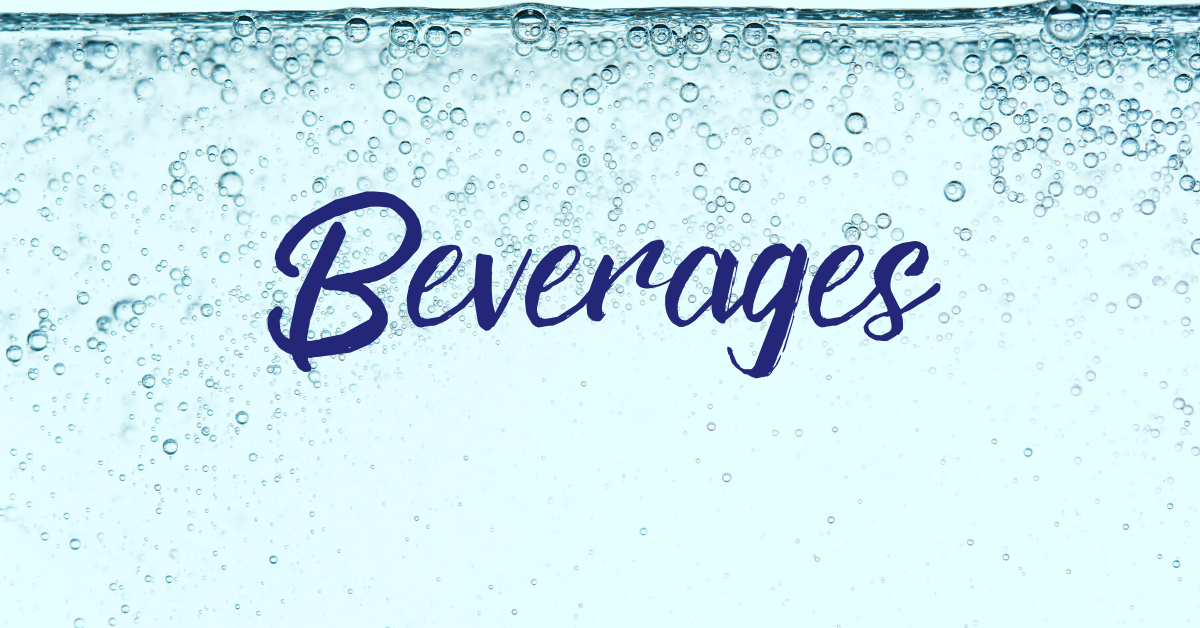
Diabetes educator Veronica Brady wraps up her Focus on Food series. The last word on food---beverage anyone?
Focus on Food, pt. 5
Coffee, tea, energy drinks, wine, liquor and beer. What can you drink? Well, let’s talk about that. Here are some of the things that you need to consider before choosing a beverage.
- What are the ingredients?
- How many calories or carbohydrates?
- How much is a serving size?
- How many do you intend to drink and over what period of time?
We all need to take in a certain amount of fluid daily. People with diabetes need to think about the calories/grams of carbohydrates contained in beverages, and whether it has any nutritive value. Lately, there has been a lot of buzz in the media about the cardiovascular, weight loss, glycemic, etc. benefits of certain beverages. Are these beverages right for you? Should you add keto creamer to your coffee? Should you use skim milk instead of whole milk? This is a lot to think about, but do we really need to take the time to think this deeply about our beverage choices?
Consider Your Options
Best choices
According to Healthline and the American Diabetes Association (ADA), the best beverage is water, of course. But, that doesn’t put all other beverages off limits. Not everybody loves plain water, and sometimes that makes it hard for them to drink enough. Consider sugar-free additives like Crystal Light, Neo, Jolly Rancher, etc. Or maybe you would like to infuse your water with fruit (strawberry, lime, lemon, orange, etc.). These are all good suggestions, and it’s still water.
Or, let’s try something different. How about:
- unsweetened ice tea (0g carbs, 2 calories)
- 2% milk (12g carbs, 122 calories, high in essential nutrients)
- diet soda (0g carbs, 0 calories)
- coffee (black coffee less than 1g carb, 2 calories per 8oz. serving. Use non-sugar sweetener and read creamer labels if you don't like it black)
With various levels of nutrition and examples of lower calories and carbohydrates, these are all acceptable choices.
To be avoided
The beverages that need to be avoided are regular soda (averaging 40g carbohydrates for a 12 oz can), juices, high-carb energy drinks, milkshakes and the like (sugary "coffee" drinks from the coffee shop and other dessert drinks). These drinks spike blood sugar and can lead to weight gain with few nutritional benefits. The primary goal is to stay hydrated, not to consume excessive calories. Find common beverages and see their carbohydrates and calories on Calorie King.
Alcohol
Alcohol intake recommendations for people with diabetes are the same as for folks who do not have diabetes: 1 alcoholic beverage per day for women and 2 for men. Don't drink on an empty stomach.
Here are some basic numbers for different types of alcoholic beverages.
Spirits (1 oz) have no carbohydrates, but do have some calories:
- Gin (64 calories)
- Rum (64 calories)
- Tequila (64 calories)
- Vodka (64 calories)
- Whiskey (64-82 calories)
Most mixed drinks are high in sugar because of the additives, but some of them can remain lower in sugar. If you use 1 oz of spirit with your mixer, here are some ways to keep the numbers down on a few popular mixed drinks:
- Gin and Tonic (12g carbs, 143 calories) can be reduced to 0g carbs and 64 calories (all from the gin) by using diet tonic water.
- Rum and Coke (16g carbs, 122 calories) can be reduced to 0g carbs and 64 calories (all from the rum) by using diet coke.
- Vodka tonic (13g carbs, 183 calories), similar to gin and tonic, can be adjusted to diet tonic water, or switch to club soda instead of tonic to make a vodka soda. Either way, you're down to just 64 calories from the vodka.
Be careful about mixers and mixed drinks if regular soda is added.
Wine (5 oz):
- Champagne (1.5g carbs, 96 calories)
- Prosecco (3.9g carbs, 122 calories)
- Red wine (3.9g carbs, 126 calories)
- White wine (3.8g carbs, 121 calories)
Beers are difficult to narrow down because of the various carb and calorie counts. Stay on the lower-carb side with light beer:
- Miller Lite (3.2g carbs, 96 calories)
- Bud Light (6.6g carbs, 110 calories)
- Coors Light (5g carbs, 102 calories)
- Michelob Ultra (2.6g carbs, 95 calories)
So remember when you are out to quench your thirst, water is certainly the best option, but it is NOT the only choice available to you. Consider the carbs/calories and drink up.
Here’s too you!
Be well.
Resources:
CDC. Get the Facts: Drinking Water and Intake. https://www.cdc.gov/nutrition/data-statistics/plain-water-the-healthier-choice.html
Healthline. https://www.healthline.com/nutrition/how-to-drink-more-water
American Diabetes Association. Diabetes.org. https://www.diabetesfoodhub.org/search-results.html?keywords=beverages
Calorie King. Beverages (Sports, Energy & Meal Shakes, Soda, Coffee, Tea). https://www.calorieking.com/us/en/foods/c/calories-in-beverages-sports-energy-meal-shakes-soda-coffee-tea/ZAh8DMQ9Rj2xguIg-QEaaQ

